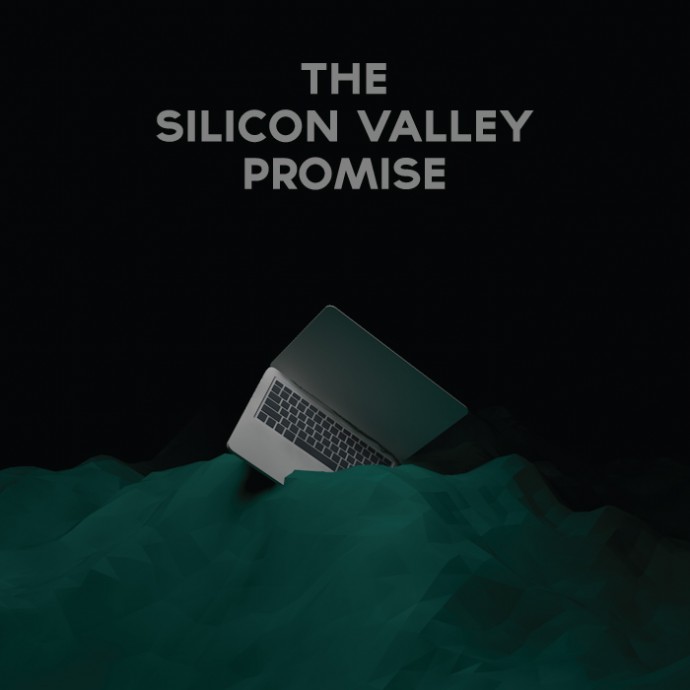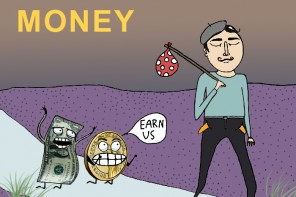When you read about start-ups in the newspaper they always seem successful. Recently, Facebook paid a measly nineteen billion dollars in shares and cash to acquire WhatsApp, a company only five years old. Business as usual, you might say. Sensa Nostra interviewed Koen Stevens, founder of Bubobox, a start-up that lets consumers connect with brands through social challenges, games, and word-of-mouth promotion. We asked him what start-up life is like before getting bought out for millions, and what happens when you don’t.
I grew up in a small town in Belgium and always had an entrepreneurial twitch. Most of my family members are entrepreneurs and both my brothers have their own businesses. I graduated university with an IT bachelor’s degree and a Software Engineering master’s. I wasn’t the best student but I had decent grades and was able to work on side projects in my spare time. Afterwards, I started my own web development company, programming and designing websites for clients and at the same time I studied e-business. Although I have multiple degrees under my belt, there’s no better education than trying things out in the real world.
It’s a bit of a cliché, but I’m happy I never worked under a boss. Of course my clients are also my bosses, but it’s different. I’ve had the chance to do what I want, but that doesn’t mean it was an easy road. When I compare myself to my friends who studied the same things as me, they all have cushy jobs in hot companies making good money. In my case, I had to start from the bottom and prove my own worth. It’s a steep hill to climb.
My first start-up was an online video restaurant guide I created within my web-development company. I managed to accumulate all the available restaurant information from the three largest online bookers, making my website the biggest restaurant portal in the world. Building something is hard, but nothing compares to marketing. It doesn’t matter if you’re the biggest anything out there if nobody knows who you are. I also learned that when switching between two companies it’s impossible to truly commit to one. I took the most valuable lessons I could from this experience and decided to shut down my main source of income. I had to let some people go even though business was doing fine. This time I was going to put in one hundred percent.
In my drawer I had hundreds of Post-its with ideas written on them. I always thought, “A thousand people in the world will have the same idea as me. An idea can never be unique. Maybe ten out of a thousand will start talking to other people about it and eventually one or two will pursue it. If they do it before me, they already have a head-start and if I choose to down that road I will need to do it differently and better.” I’m quite sure Bubobox wasn’t at the top of my drawer, but it got the most people excited and that, for me, was a good starting point.
Soon after I searched for other professionals who wanted to join me in the adventure. If I could convince them, then I knew I had to go all in. In the beginning, everything happening in our start-up was exciting. I found a co-founder who was truly a technical wizard, so that gave me the space to do the business side. Within six months we had our first client. We went out and celebrated, but then for the next half a year we had a dry spell. You create a lot of self-doubt, asking if what you’re doing is right. On top of that, for the first eighteen months we didn’t pay ourselves. That feels very unnatural. In the start-up world they call it sweat money and ooh boy we sweated. Can someone survive without a wage? For more than a year? My co-founder said yes.
At the this point we had an okay product and our first big clients, so we worked towards finding funding. In a funny way, the universe helped us out, like it always does, by the end of the year we managed to attract our first investor. Now we had the energy, confidence and obviously money to continue our story. We spent it all on marketing, programmers and graphic designers. Not a dime went to ourselves. Luckily this stage allowed us to talk with new investors. They saw we could be trusted and after some hustling we had enough to fund our company for the next few years. We made it over the first hump and gradually started to pay ourselves a small wage, spending most of the money on building the business and team.
Right now we’re three years in and everything is going well. We have multiple employees and offices in Silicon Valley and Singapore. You read a lot of articles these days about Brussels, Berlin, or London being great places for start-ups but nothing compares to Silicon Valley. I lived there with my co-founder for two months. You go out for sushi, casually brainstorm about your plans and someone at the table next to you overhears your conversation and joins in. Everybody speaks the same language. It’s a creative hub for entrepreneurs, job seekers, investors and academics, but the competition is also the fiercest of any start-up city.
We’re now working hard towards finding our spot in the market. This could mean that we need an additional venture capitalist (VC) investment to scale ourselves further. Talking with VCs is the last step in a start-up’s life-cycle. They’re ‘the real McCo’y. When they take an interest, they’ll invest a great deal in making your brand a household name. On a strategic level, this is something we will pursue, but we’ll have to evaluate it wisely. Everything becomes about money at one point in the funding process. We have to be cautious about what we will gain and what we would have to give up.
In the future, I can’t say for sure what will happen to Bubobox. The worst-case scenario would be that we can’t fit our product in the market fast enough, our funds will run dry and the VCs will lose interest. That will have a negative impact on our team and the company. The best-case scenario for me is being able to run the start-up for many more years and eventually sell it to a larger company. But I would only let this happen when my team is also excited about that scenario. Getting a big payout is great, but what would I do then? Travel the world? I couldn’t do that for the rest of my life if I still had a creative drive. But all of this is speculation. Once there’s big money involved all the rules change.
Unfortunately I can’t anticipate what will happen to the future of my start-up. I could get fired and replaced by a CEO with more experience and lose control over everything we worked for. It’s a hard knock life and the odds are always against you. Even if we get funded, only one out of ten VC-backed start-ups becomes a big hit. Maybe two or three remain afloat. You always hear about the big success stories like Twitter, Facebook and WhatsApp, but you never hear about the hundreds of others that cease to exist every day. Of course this is the dream of every start-up, but that’s not the only thing relevant to me.
Having a great team working on the same goal in a challenging atmosphere feels wonderful to be a part of. Being a start-up entrepreneur isn’t a glorious lifestyle, but it’s one hell of an experience! Especially as a founder, you always have to hustle: find the right people to work with, assure investors your company is worth their money, convince clients you have the best product on the market.
A lot of relationships break down because of this. You can’t always chip in, and you’ll have to work on Sundays and miss out on family reunions and the like. It sounds easy at first, but it takes a lot of empathy on the part of your significant other.
If this start-up doesn’t take off, I know it won’t be the biggest disaster of my life, and if it does, I’m ready to face whatever comes my way. It’s an adrenaline-filled roller-coaster ride and I love every second of it. I’ve found a great team to share the ups and downs with and luckily someone with patience and understanding to come home to.







